#such is exposed to the alien horrors at work (allowing SPOILER for some very good 'battling possession' acting that leads into a truly
Text
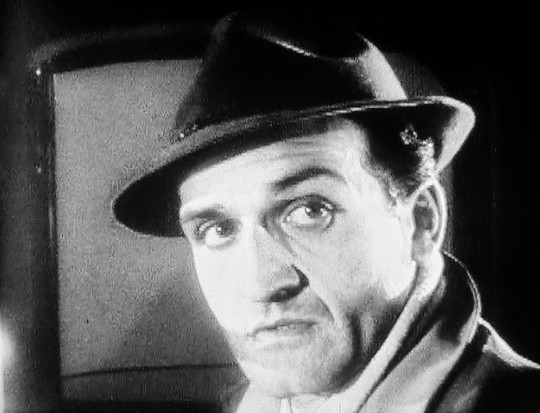
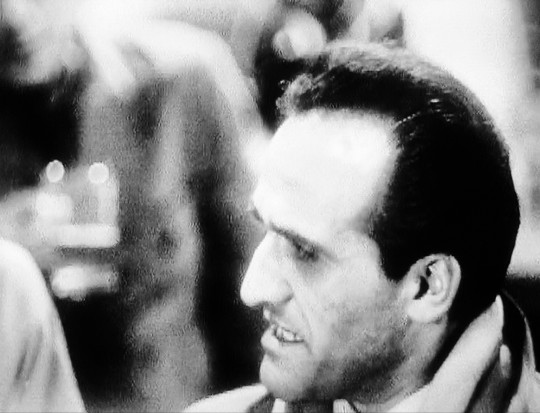

A young Roger Delgado works to expose an otherworldly conspiracy, as newspaper columnist Hugh Conrad in Quatermass II: The Coming (1.4, BBC, 1955)
#fave spotting#roger delgado#the master#quatermass#doctor who#classic doctor who#delgado!master#quatermass ii#quatermass 2#images are rough i know‚ but that reflects the quality of the material to a degree#that we have complete copies of Quatermass II is a small miracle and to be celebrated#but as a bbc series from 1955 it is understandably in rather poor form as regards picture and sound quality#at least compared to contemporaneous shows from itc or america (largely shot on film)#anyway. what a delight to see young Rog! he's only in this one episode (although he can be seen briefly in the recap at the start of ep 5#and thus sometimes is credited with both) but he's playing a great character‚ a fleet street wonder that Quatermass brings in to try#and spread word about the conspiracy at the heart of the series. it allows Rog to play quite a different figure to the villains and foreign#dignitaries that became his stock in trade later on; he's a wily‚ astute but sceptical figure‚ who wants proof of Quatermass' claims and as#such is exposed to the alien horrors at work (allowing SPOILER for some very good 'battling possession' acting that leads into a truly#great cliffhanger). the serial almost feels like it has a guest of the week‚ with a significant character turning up for one ep only in#most installments‚ including Rupert Davies in the previous episode‚ but i think it's just the way the serial was formatted (and it's not#like Delgado or even Davies were particularly well known actors at this point in their careers)#still it's been fun to revisit. highly recommended for fans of dark and doomy sci fi horror
25 notes
·
View notes
Text
A WAFFLE TOPPED WITH TROPES AND EXPECTATIONS TO FULFILL: ADVENTURES IN REWRITES - PART FIVE

If you’ve never heard of TVtropes.org, you are living under a very joyless rock. Part encyclopedia, part snark factory, and always running rampant with spoilers, it’s a treasure trove of every single trope known in storytelling.
What the squirrel-scrambling shit is a trope, you may ask?
According to one dictionary definition, “in the arts a trope is simply a common convention in a particular medium.”
Tropes are why Game of Thrones is full of epic sword clashing battles with ice zombies; why kids who go to remote cabins die in horror movies; why people who seemingly hate each other fall in love in romance movies; why Jessica Jones is a hard-drinking misanthrope instead of a misanthropic soccer mom.
There's no audience on the face of this earth that approaches your tale from a vacuum. They’ve seen stuff before. Over the years, certain ideas have become traditions in narratives, and these traditions create a sort of literary grammar that fuels expectation from your audience. You might think expectations are the bane of creative existence, but it’s not so with story. With stories, this pre-established language we speak with the audience allows them to predict what happens next — and that? That’s the good stuff. It's what allows you to throw a zag where everyone's preparing for a zig, and that gap between expectation and development cues a lightning strike in the dopamine pathways. It's what makes people lean in.
You can subvert them, or you can play them straight, but expectations are always a storyteller’s best friend.
The conventions of a given genre help you brainstorm the elements your story needs for it to be accessible, and this is by no means a limitation. Case and point? Witness.
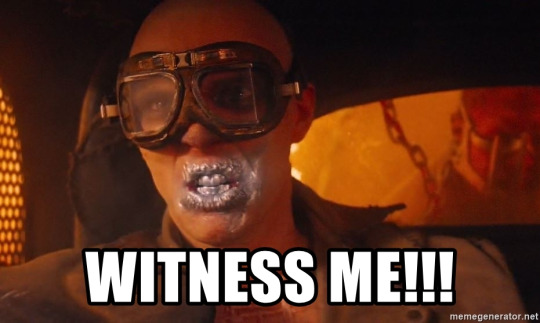
No, no... Wrong movie.
WITNESS THIS USE OF TROPES
In Witness, we meet John Book, a city cop who’s on the path to discover some serious corruption within his precinct, and find himself in a life-or-death battle to expose the truth and right wrongs. Sounds pretty familiar, right?

But not if the entire third act (and much of the second) takes place on a farm… in an Amish community… with a freaking barn-raising sequence and everything. The genius of Witness is that it plays a lot of classical film noir conventions about flawed heroes putting themselves on the line to weed out corruption and throws your expectations out of whack by dumping you off in an almost alien world. You know what should happen, but because things go so off the rails from what’s familiar, you’re constantly doubting if a zig or a zag is on its way.
Inside of Witness, we find a lot of familiar turf: whether or not the big cop can trust his superiors, a murder that needs solving, the revelation that there may be no easy recourse when the murderer is revealed, and the need for John Book to take matters into his own hands, wrestling with the cost of violence and the need for justice. The reason this stuff works isn’t because it’s prescriptive; it’s because it speaks to something inside of us — all of us.
Tropes, conventions and expectations of genre, provide a shorthand that helps us see how — much like certain things show up in certain movies — certain things show up in certain parts of life. They are unifiers of experience. They remind us that while it often feels opposite — we all go through a lot of the same stuff as people.
Are you with me yet? Tropes are good. They’re your friend.
Well, either way, they’re my friend. Nestled away in the first draft of the Librarian and use it as the engine that drives conflict and pacing. So now that I’ve decided on a thematic premise and a genre — what does a mystery story require?
THE NECESSARY NECESSITIES
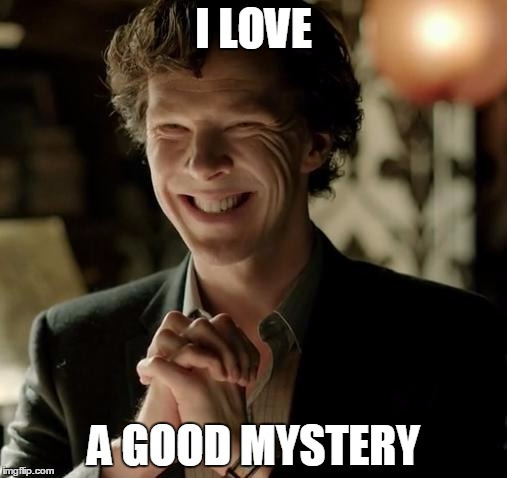
FIRST OF ALL, YOU NEED A MYSTERY. (HOLY DUH, BATPERSON!)
With this one, I’ve got the looming question of “where are all these missing kids going? Who’s behind it, and once we learn the truth, will our leads get to the bottom of it and free them before the curtain drops?”
This is why second drafts are fun: I’ve got all that figured out. The kids are stuck in Hazel West’s cavern lair outside of town, hooked up to her Wicked Witch machine that’s syphoning out their imaginations. I know somewhere near or in the third act, the Librarian is going to offer to give Hazel her substation imagination in exchange for freeing the kids, and Rory will have to operate on her own to save her.
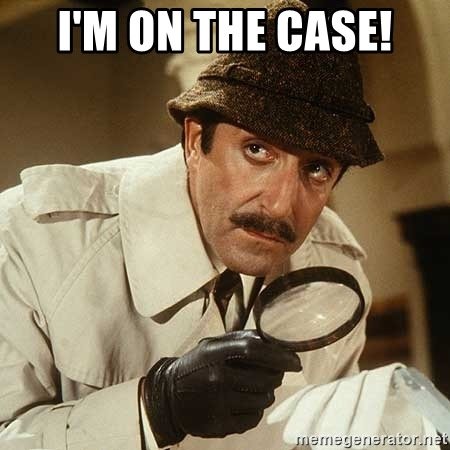
YOU NEED A SLEUTH (DOUBLE-DUH, RIGHT?)
Another checkmark. Some things I’ll have to keep in mind about this are dynamics: Rory and Fiona the Librarian undergo something of a buddy cop arc, and to keep things interesting, their points of view are best served at odds with each other. I’ll do some more focusing on this when I start clarifying my character dynamics, but I’m planting the seed early so I don’t forget this. If I do, I run the risk of losing momentum and tension, and if they don’t start off with some friction, Fiona’s big sacrificial play and the bond these two form will go out the window.

YOU NEED A VILLAIN WITH A MOTIVATION THAT BRINGS THE PROTAGONIST’S INNER DILEMMA TO THE SURFACE
It’s not enough just to have a Wicked Witch doing wicked and witchy things. What’s essential is the element I sketched out when I was thinking about theme — if Hazel’s reason for kidnappings stems from her desire to deny her true nature, it will help Rory to get the perspective shift needed to deliver a satisfying arc. In Save the Cat, Blake Snyder sees mysteries not so much as whodunit, but whydunit. He sums up the overall purpose a story of this nature serves as such:
“…The investigation into the dark side of humanity (read: the crime) is often an investigation into ourselves in an M.C. Escher-kaleidoscopic-reptile-eating-its-own-tail kind of way. That’s what a good whydunit does — it turns the x-ray machine back on ourselves and asks, ‘Are we this evil?’”

THE MYSTERY’S STAKES NEED TO BE IN MOTION; THEY MUST ESCALATE AND GET PERSONAL FOR THE SLEUTH
From Hannibal to Knives Out to Se7en, it’s necessary that at some point the mystery starts getting personal. It locks the protagonist into solving the case: the killer sets their sights on the sleuth’s love interest, a key piece of evidence turns the investigation around and suddenly the hero is being scrutinized. This kind of progression keeps your second act from becoming inert, and it also keeps the audience from asking the ever-dreadful question of, “why don’t they just walk away?”
If things get personal, it’s much harder to walk away from the case. It raises the stakes. It’s a great midpoint to build to that spins the story in a more visceral direction and adds a layer of emotion that keeps the case from going cold.
In my current draft, I’ve got Hazel turning Rory’s parents — whom she’s been resenting for moving her from NYC out to rural California — into flying monkey henchpeople.
Riffing off my guiding principle of “If you reject who you are to avoid rejection by the world at large, you’ll wind up forgetting the value of who you are.” It stands to reason that I’ll expand the world a little and give Rory some classmates who become friends — and if you’re thinking “she’ll wind up stuck with a band of misfits who are ostracized by the school’s ruling class” well, you get a cookie.
I’ll dig more into what else I plan to add in another post — right now, I’m just making sure I know what ingredients I’m cooking with.

A TRAIL OF CLUES AND WITNESSES TO INTERROGATE
You can’t solve a crime without clues. You can’t get to the truth without asking a few people what’s going on. Without a trail for the detectives to follow, your mystery becomes inert. As I’ve harped on previously, a screenplay must have an unyielding sense of propulsion. Unlike novels, which are stories that start and stop and find their movement more from the inner world of its characters, movies are stories in action. They’re moving pictures. Now this is where the real fun and games of The Librarian might live: Imagine interrogating Dr. Jekyll & Mr. Hyde, or having the chief suspect being the Pied Piper (hey, he is known to kidnap children…), or how about seeking the help of Holmes and Watson to solve the case in a rapid-fire montage?
A lot of this was already coming together in the first draft, but with the help of knowing my genre and having a theme to guide things, I’ve got a chance of making it pop.

RED HERRINGS — SOMETHING FISHY, BUT NOT THE ANSWER
You know these, yet they always get you off-guard. It seems like the sleuth’s found their lead suspect; or maybe the supposed killer is behind bars. All signs point to Colonel Mustard in the study with a candlestick… But then, the unthinkable happens: another victim appears, an unexpected message arrives or a fresh piece of evidence appears in the mailbox. Great Garbanzo Beans! We had it all wrong, Scoobs! A good red herring isn’t just about throwing in a twist to keep things fresh, it’s there to let put your audience in the detective’s shoes. You invite them to solve the mystery, and maybe even get ahead of the protagonist so that they’re sitting back in their chair with a smug expression, saying: “I’ve got this all figured out. I could be a detective.”
The best way to keep an audience interested is to let them use their desire for predicting the outcome and turning it against them. It’s one of the few areas in life where duping someone makes them like you. Now, it’s essential that you play fair, and that when the real perpetrator is revealed, it doesn’t feel like you just randomly chose somebody to pull one over on your audience… So the trick is having the evidence lead to both the Red Herring and the True Blue Herring.
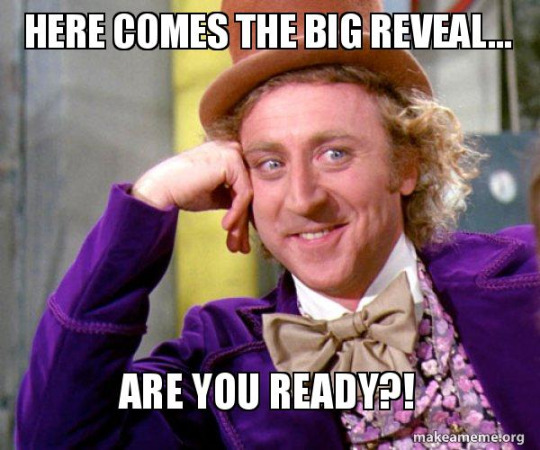
THE BIG REVEAL/SOLUTION TO THE FINAL PROBLEM
Once all the evidence has been pored over, after every suspect is interrogated, after the stakes close in and get personal with the detective, and once we’ve see the true color of the herring, there’s only one thing to do: bring the truth to light in the final confrontation. Many times, this sequence climaxes with the killer/thief/kidnapper doing a big “Why and how I did it” speech — sometimes with a slew of flashpops showing all the places we missed them at work on our way here. Think of Hot Fuzz when Nicolas Angel finally learns that the town council has been killing off villagers who stood in their way. Think of the tastefully-sweatered Chris Evans when his plot to steal his father’s estate is revealed by Southern Drawl Daniel Craig and Ana de Armas. Don’t linger too long on creep-show Kevin Spacey’s rant about the sins of this world and how Morgan Freeman and Brad Pitt are no exception… But you get the picture. It’s, “Okay. You got me, but by the way…”
There’s always an opportunity in this sequence to throw in one last twist; a final explosion of excitement that makes us question whether the hero will find justice or wind up a victim themselves. This is the moment where the dark flaw shared by protagonist and antagonist comes to a head — and it’s their different tactics for wrestling with their dilemma that decide the story’s conclusion.
You can be happy or you can be sad here. Doesn’t really matter. But since I’m writing for kids and am much more interested in doing material that offers hope instead of cynicism, I think I’ll go with happy.
——
And that’s the list. At this point, you might be thinking, “Wow, this is super paint-by-numbers, isn’t it?” Well... no. You can’t subvert something if you don’t know what the thing is. Not to mention, these are all pretty wide bins to start collecting different story elements. They’re not prescribed plot points; they’re tropes that help build gaps between the audience’s anticipation and the results of my scenes. They inform more than they dictate. One of the best ways to play with all of this stuff — aside from altering the setting like Witness does — is to place these elements in unexpected places: for me, I’m loosely planning to have the “big reveal” scene come early, before my “all is lost” and have my third act be a big chase sequence to pay off my original intentions of writing a fun kids’ adventure tale. Yours may be different. That’s the thing about cake: it’s still cake any way you slice it.
I’ll have to brainstorm on the exact what’s for each of these before I go to pages, but armed with this as well as my thematic premise, I’ve got a general sense of my story’s shape. There’s only one thing left to get super clear on before it’s time to get into story beats and outlining… And that’s the ever tasty waffle of character.
0 notes
Text
Get Out (2017) Review
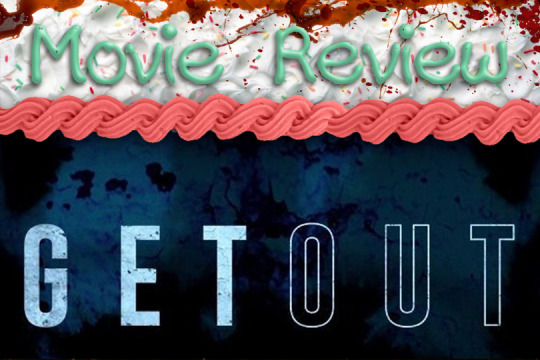
Reviewer: Matthew Fishgold
Important films don’t come too often in a lifetime, and they’re almost never a horror movie. Get Out (2017) is a rare horror experience that’s going to get inside your head and grab you by the soul. Written and directed by Jordan Peele in his horror movie debut, this cinematic masterpiece is an absolute must see.
Inspired by the use and portrayal of Duane Jones’ Ben in 1968’s Night of the Living Dead, Jordan Peele had his artistic gears turning at a very young age.
For our drink, we started with a focus point of hot tea.

Now that we have our drink, let's enjoy our movie and have our review.
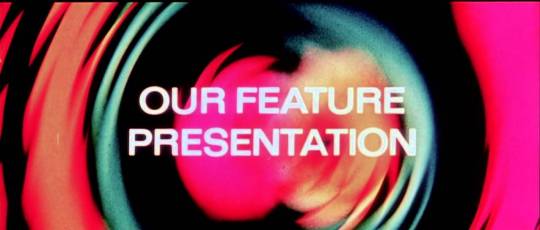
Get Out begins with a deceptively smart masked villain moment that makes you feel all too comfortable with an age old slasher movie routine that we’ve all seen before. However, this mcguffin takes you to unexplored sunken depths much later in the film's climax.
In this opening scene, we’re also treated to the first in a consistent flow of immersive cinematography. I found myself turning my head with the camera more times than once.
Transitioning to our leading couple played by Allison Williams (Rose Armitage) and Daniel Kaluuya (Chris Washington), the audience feels right at home with the young & modern American Dream. Chris is a talented artist succeeding in the field of photography, supporting himself and his cute fluffy dog. Chris has his shit together.
Atmosphere in the set design truly helps in establishing such an unquestionable “feel” for the audience. Chris’s apartment reflects the personality that Kaluuya portrays to a T. It’s sleek, cozy, controlled, and lightly styled with inspirational art reflecting youth.
Rose and Chris begin discussing the underbelly of our culture in a roundabout way. Chris is worried about the expectations of Rose’s family that he’s about to meet for the first time. “Do they know I’m black?” After Chris voices his worries, Rose “comforts” him with humor, making him feel foolish for bringing it up. Chris plays along and goes with the flow. After all, he loves her and wants everything to work out.

We’ve all been in a situation where our significant other makes us feel silly about something that truly worries us. Though the core of this film concerns racism, it’s absolutely NOT alienating. Peele has perfectly matched his own voice with everyday relatable issues. It’s simply astounding.
I remember watching Putney Swope (1969) in film school and enjoying it but feeling out of my depths. Black Shampoo (1976) was incredibly fun but just felt wrong at times and the blaxploitation western, Boss (1975) left me with a similar feel. However, Get Out (2017) humanizes all of its characters, keeping the audience in step with its protagonist, despite their ethnicity.
If you can’t get into the shoes of Chris Washington, you must be blind, deaf and brain dead.
While traveling to see Rose’s family, the couple clips a deer with their vehicle. Chris explores the woods nearby the accident to find the animal in a helpless and suffering condition. Rose calls the police to assist in the situation which cleverly sets us up for something later in the film. Nuances in Kaluuya’s performance are displayed to the audience in close up micro-expressions, and in this scene, we can definitely feel how much this experience disturbs him. Though disturbed, Chris’ character has a tightly controlled demeanor which he shifts into when interacting with the police officer and Rose.
When Chris and Rose arrive at her family’s home, the audience begins to notice oddities that end up playing with our perceptions. This isn’t a movie where you can obviously tell what the protagonists should/shouldn’t do. You’ll be biting your nails wondering what the fuck is going on and who to trust, instead of yelling at the characters to do this or don’t do that.
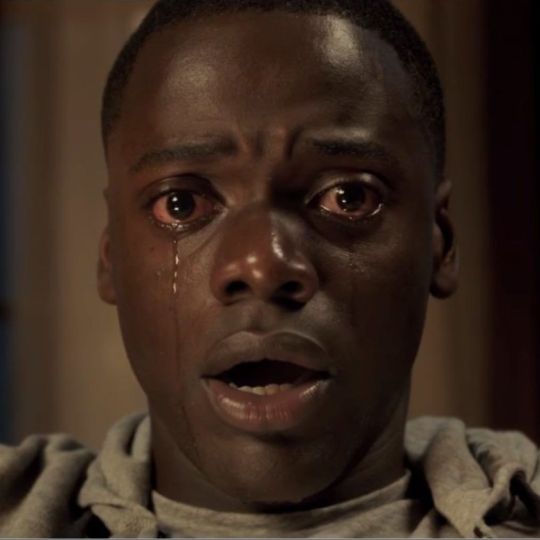
This is where I’m leaving off. Get Out (2017) is not a film you want to spoil. The truth behind the situation is going to chill you to the bone. We needed this movie, now more than ever. Get Out speaks to our generation with poignant truth and originality.
Masterpieces of the cinema deserve to be celebrated and Get Out better win some fucking Oscars. I give this film five out of five teacups. I’ll be watching in theaters again and putting it on my to buy on release list. Get out of the house and see this movie in theaters!

WARNING: The below thank you letter to Mr. Peele has VERY SLIGHT SPOILERS.
Dear Mr. Peele,
I would like to start off by introducing myself. My name is Christina. I am a middle-class white chick with an interest in social justice, so y’know, I’m not going to pretend I know everything this film was attempting to cover. My boyfriend is super into horror movies, and when I saw the trailer to Get Out I looked at him and said, “Ooooh, that’s one I want to see.”
I was not disappointed. He wasn’t either. By the looks of the Rotten Tomato score, you have struck cinematic gold. You probably deserve an Oscar more than La La Land.*
Right off the bat, you set us up for the Dangers of Walking While Black. In my white girl world, I equate this with the Dangers of Walking Home Alone at Night. What were you doing out at that time? Must have been looking for trouble. You know the drill; it’s all bullshit.
Fast forward, and we meet this beautiful interracial couple. The audience thinks, “Oh look, 2016** is on the screen. Aren’t they adorable!” But then Chris asks his white girlfriend if she maybe mentioned that he was black to her parents. You see, they’ve been dating a few months and he’s going to meet her parents! It’s sweet... and they’re not racist. Why would she even mention it, it’s so not an issue! Geez, what does he think she is, a monster?
But, obviously, it is an issue. The remainder of the movie is horror-slash-real-life.
We meet white people who roll out all the micro-aggressions. Can I please see your ID? With your genetic make-up, you could be a beast! Oh, you look so strong. They treat blackness like it’s a trend, a fashion. Living in a post-racial world -- the patriarch of the family would have voted for Obama for a third time if he could -- being black is all the rage, what’s the downside?
We even see Chris put up with all this bullshit because it’s part of his life. He knows not to argue with the officer. He knows better than to point out a white guys racism. He knows that he’s just being paranoid and yes, everything is fine I’m sure. Do not make white people feel bad about their racism, I’m sure they mean well. It’s totally normal to be sized up like a piece of meat. And those other black people must just be crazy, not brainwashed or manipulated. No no no no no no no. Oh, no.
It really struck me how much this movie exposed the underlying idea that Black People need to be tamed; they must be whitewashed until they are acceptable to roll with high society. We see these whitewashed characters in the white family’s help. They are all very careful about saying the Right Things for their white people. Walter is strong and is the groundskeeper, Georgina is the family’s chef and personal servant and Andrew is an old white lady’s new lover.
Sex slaves and shit. She parades him around as an object of beauty, even making him twirl for her friends at one point. Chris begins to put two and two together when he tries to sneak a photo of Andrew to send to his buddy, Rod. The flash on his phone goes off, it breaks the hypnotism and Andrew warns Chris to “Get Out!” After Chris sends the photo, Rod immediately recognizes Andrew as Dre, a guy from his circle who had gone missing months ago. Chris realizes how “crazy” it sounds, but he knows he has to get away from this place before they turn him into a mindless drone too.
The film also deals the appropriation of black culture in a very overt way, the white family and friends all take what they deem necessary from their black servants for themselves and then turn what they deem unnecessary (the rest of their lives and personality) into a mindless drone.
White people will take your music, your beauty, your art and your style and we will allow you to entertain, but please learn to speak proper English and wear your pants correctly and please don’t wear your hair like that because it’s unprofessional and for the love of god, don’t ever take a knee for the national anthem.***
Finally, I would like to say thank you for that ending. It was a twist, it was unexpected and it was soooo so good.
Sincerely,
Cakewolf’s Consort
(Christina)
*Believe it or not, I have not seen La La Land, even though it starred Ryan Gosling, who was confused with Ryan Reynolds on a local theater’s website because I guess all Ryans look the same.
**Because who are we kidding, 2017 is a shit show.
*** White folks can wear the flag as a swimsuit, swim trunks, underwear, drape their naked bodies with it or turn it into napkins for barbecues, but otherwise, it is to be respected Above All Things.
#GET OUT#GET OUT 2017#HORROR#MOVIE#REVIEW#HORROR MOVIE REVIEW#HORROR MOVIE#JORDAN PEELE#PEELE#KEY AND PEELE#MOVIE REVIEW#COCKTAIL#MIXED DRINK#2017 HORROR#2017 HORROR MOVIES#DANIEL KALUUYA#CHRIS WASHINGTON#ALLISON WILLIAMS#ROSE ARMITAGE#Written Review
4 notes
·
View notes
Text
okay, i decided to disregard/circumvent the stayfocusd time limit just for tonight because fuck it, i don’t have anything to do tonight and i definitely deserve a break. and i like thinking about characters. so i just finished bnha ep 13 (the finale), and here’s my thoughts! finally on the computer yay
for those who know bnha/follow the manga, of course you’re welcome to discuss this stuff with me, but please don’t spoil me on anything or i will cry
i’m still trying to decide the fate of all might. like i said before, he started at the top and he’s got nowhere to go but down. there are a couple routes i think he could take: he lives for a while, then dies tragically but inevitably at the end like korosensei did; he gets abruptly killed off in the middle at a climactic, suspenseful moment, shocking everyone and terrifying them because what will they do without their symbol of peace; he lives, but he has to stop being a full-time superhero and finds another way to live, basically. of course, while i do like analyzing plot for plot twists and all that, i’ve always preferred doing character analysis to everything else, and i’m not that good at predicting plot.
but honestly, sounds like the dude’s gonna die. and if he does, i hope it’s soon, because this was being foreshadowed from episode #1 and i’ve been waiting this entire season, thinking every single episode, “is this the episode he’s going to die?” and he’s not a favorite, but i do like him enough (and am aware enough of how his death will emotionally wreck izuku as well as other characters) that the constant dread is wearing down on me. i am constantly in a state of terrible suspense. (but like i said no spoilers no one is allowed to tell me what happens okay i gotta find out for myself)
kind of a tangent but everything comes back to AC on this blog, so. AC changed the way i think about a lot of things because getting so heavily involved in the canon and fandom, and being exposed to others’ interests, made me far more open-minded than i used to be. for example, i really wasn’t good at shows with large casts (AC and the almost 30 students, BNHA’s students + teachers) before, b/c i didn’t track them very well and am shit at matching names to faces as well as recalling personalities, but hey, obsessing over the entirety of class 3-E for months will change that. also, all my favorites were. usually. karma types, for lack of a better phrasing. i could never relate to cinnamon roll (TM) characters. or characters who weren’t emotional disasters. (boy i had trouble liking nagisa at first.)
regarding what i keep saying about types: the girls, in terms of personalities, aren’t quite my usual thing. the closest person in terms of preference to the characters i typically like are yaoyoruzu and jirou. but honestly who cares because right now i like them all, and they are great and fabulous and uraraka is adorable and i like her a lot. i wanna see her have some character development first, though, and oh god the girls are my aesthetic. momo’s hair and jinou’s general aloof aura + earphones and tsu’s frog quirk and holy shit, pink alien girl? i don’t know her, she hasn’t had much time in the anime yet, but she’s. she’s a girl. who’s pink with alien features. how the fuck is that not the coolest shit ever
as fond of todoroki, as always. i looked up a bit on him on the wikia but i don’t want to spoil myself. but i did pick up enough to solidify my adoration for him. >.< i need to stop but god, i’m really fond of him. fuck. so fond.
izuku’s character continues to develop and it’s really wonderful. i used to live for mentor-student relationships, but then i realised (and AC did not help) that the mentor usually ends up dying, so i’m trying not to get attached to this mentor-student relationship and it’s not fucking working. the conversation he and all might had in the hospital beds at the end. shit, man. don’t get attached don’t get attached don’t get attached
something i really appreciate is that i knew this fandom really adores bakugou (and i say this as someone who literally doesn’t know shit about the bnha fandom), so i assumed he’d be one of those assholes who gets glorified by the narrative because it’s okay if he’s an asshole as long as he’s talented and handsome uwu he’s just being snarky haha how funny!! i mean yes he is an asshole but he isn’t glorified by the narrative, the narrative doesn’t hide at all that, while not totally evil, he’s a complicated character who genuinely can be unlikable and is kinda fucking awful. so that’s a pleasant surprise. i thought the narrative would revolve around him more b/c the fandom’s so fond of him but it doesn’t and i’m really glad, the whole class is really great (and imo the school too, i’ll talk worldbuilding later) and they all deserve focus.
i’m usually incredibly fond of villains, but i also mostly read YA fantasy, where the villains are very often attractive young characters who are snarky, charismatic types who draw the reader in and are way too likable. AC villains weren’t like that for me (although i ended up liking them anyway, just blame my friends lmao). the villains in BNHA so far aren’t quite the attractive young character archetypes either, but i really like them anyway. i wanna know their motivations a lot. what’s the relationship between nomu and shigaraki (i kinda already brotp it)? what led shigaraki and kurogiri to want to kill all might so badly? who made nomu the way he was? if the motive is a personal grudge or a tragic backstory, fuck. i’m weak as fuck for personal grudges and/or tragic backstories in villains, alright?
also, shigaraki’s hands shit + the way his quirk behaves/is animated is this level of slightly surreal horror — not really over-the-top gory/melodramatically creepy, but definitely disturbing — that’s an aesthetic i’m quite fond of, although only in moderation.
uraraka’s power, while hardly unusual, is imo something that can go really far and has incredible potential. it’s definitely gone amazing places in past characters who have the same power in other fiction. i wanna see her develop it.
and now i’m gonna talk worldbuilding, because while i’m not that great at analyzing it or doing it myself — i’m decent enough to pull together a convincing world for my fiction, but that’s about it, since i’m not great at understanding how the world works, let alone how changes would affect it on a wide scale — superpowers are something i’m quite fond of.
so, there’s this one YA series called the reckoners, by brandon sanderson. he writes a lot of stuff about people with magic, and i love his work, especially the reckoners. i am bringing this up for two things. one, the protagonist is also a guy with no powers who’s unusually obsessed with the intricacies of the superpowered people and their superpowers in a world where superpowers just started randomly appearing and became integrated into society, although he’s obsessed because of a vastly different reason from izuku.
two, the worldbuilding is really good, and the powers are unique. it’s very different from your typical story about superpowers. in my opinion, every kind of basic power — telekinesis, manipulating elements, reading/controlling minds — has been used. i wouldn’t say it’s impossible to come up with new basic powers, but it’s damn near close. but what’s good about superpowers nowadays, what makes them interesting and original, is not the power itself, but its limits. how far can it go? what are the weaknesses? how can it be used?
i’m gonna give an example i’m really fond of — regalia from the reckoners. she’s a character who first appears in the second book. regalia has the ability to manipulate water, which we’ve all seen plenty of times in fiction, right? but it’s not just typical shit like “oh, look at this huge tide destroying a building!” my memory is fuzzy, but one of the things she can do is use the reflections created by water as windows.
it’s hard to explain, but like, if you look into a puddle (and remember, water can reflect), and she’s paying attention, she can appear and look back at you and talk, like in a mirror. she’s able to communicate with you through it. she can keep an eye on the city she rules over because she flooded the entire place with water, making it a sort of island, and is able to watch everyone through its reflections. now that’s something new, even though water powers have been done to death.
i like how bnha handles the drawbacks of superpowers — it makes a little more unique. i’m not entirely pleased, but:
one post i’ve read on howtofightwrite (an excellent tumblr, writers who write action or anything involving combat should check it out!) is how, realistically, if you have super strength, every time you actually use it to anywhere near its fullest potential, it will fucking shatter your body. which is kinda what’s happening to izuku, i’ll explain in a sec. but like, if you punch someone, your knuckles hurt afterwards. except izuku’s punches are super super strong, so it hurts him way more than the normal person.
so i think that’s good! it’s a nice twist on how super strength usually works! but i’m still a bit displeased, because seriously, super strength is not at all new and it’s implied he’ll learn to control it instead of continuing to just have to deal with this particular drawback. all might learned to control it, which i don’t see how it makes physical sense, but whatever, fuck it, magic is magic. so i don’t think the blowback (looking for a word here?) resulting from his punches are actually because of realistic physical reasons TM that i just theorized, it’s just magic/being unable to control it, which is sad because c’mon, science and magic working together is cooler instead of “he got used to it by getting Good at his powers!”, but oh well. i’m not a doctor, anyway
honestly, i’m kinda disappointed that the most powerful heroes have super strength/superspeed, and that’s the only twist on it, and not even a terribly big one if izuku’s just gonna learn to control it through the power of experience. it’s not unique or new and i’d like to see something a little cleverer, i guess? like, i really like the idea of people adjusting to their powers and any drawbacks through just intelligence and the power of science and technology and wit, instead of practice/improvement upon the ability itself.
anyway, enough about izuku’s power. something else i’d like to see addressed is the emotional impact of izuku being quirkless all his life, and suddenly he has a power and everyone thinks he’s amazing. because it sounds like being quirkless fucked him up a ton. the protag of the reckoners is powerless and makes the best of it, and that’s what i really appreciate about the series — he never ever gets a power, he just figures out how to get through terrible life-or-death situations based on wit and his allies and cleverness and being amazing because you can still do amazing things without being born with those things. while i’m not saying izuku needed to take that route — what is it when he’s thought all his life he’s inferior, worshipped this one guy who turns out to be horribly vulnerable, and suddenly he’s got one of the most powerful quirks out there? (im assuming this gets addressed later though)
something else: how does society restructure itself now that everyone has a quirk? here’s the best thing about the reckoners: the people with the powers are the bad guys. like, not “oh, some people misuse their quirks” but almost everyone does, and what all the superpowered ones do, after they suddenly get their powers, is basically taken over the world. they’ve set up this tyrannical government in the usa where different superpowered people rule the cities and it’s basically a dystopia with superpowers, but the superpowered ones aren’t the rebels, they’re the oppressors. it’s a great twist on the typical superhero narrative. it changes the structure of society a lot. think legend of korra, but worse, more pronounced, a more oppressive regime.
so like, how does the world in bnha change now that 80% of people have a quirk? i really wanna know. UA is a start, but there’s got to be more to it than “there are schools trained to teach heroes, quirkless people feel bad about themselves, and heroes fight villains. and the villains don’t like the heroes because of that.” give! me! more! you don’t have to write me an encyclopedia of information (dear matsui, thank you for building your characters so much shit like the rollbook info exists, but not everyone does that) but what else is there? there has to be more than that.
some of the superpowers are interesting, yeah, but none of them stick out so much. i’ve read too much stuff about superpowers to be easily impressed, but really, “school of heroes” has been done a lot and while i like bnha a lot so far, they’re gonna have to go above and beyond what they’re currently doing to really impress me. rn i’m really curious what they’re gonna do with mineta ‘cause his power seems so fucking useless but he’s clearly there for a reason (how’d he pass the entrance exam?). the other powers don’t stick out much to me. stuff like tsu’s frog quirk or todoroki’s half-hot, half-cold shit (instead of just one) are just unconventional enough for me to raise an eyebrow, but not much more.
anyway. hoping they expand on that. but the worldbuilding isn’t horrendous or anything, i’m really enjoying all the powers and the worldbuilding’s good enough, just could be taken a lot farther. like, the potential is wow. god, i already love the characters so much, though
oh, also. not interested into getting into bnha fandom or the manga as of right now, and this blog is staying AC, but talking about it is still fun (i like discussing things!) and i’m gonna watch s2 when it comes out.
#bnha lb#i decided to readmore this because i realised it's 2.4k words and it's not even like structured meta just me talking
2 notes
·
View notes
Photo
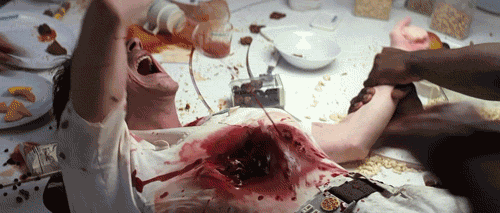
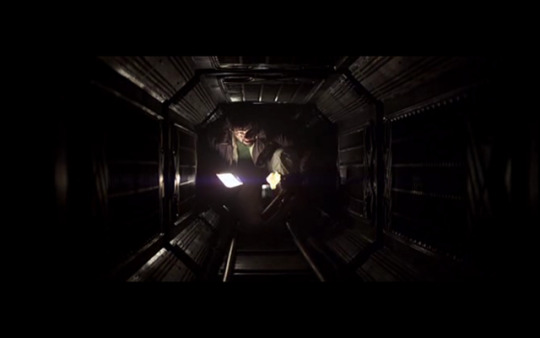


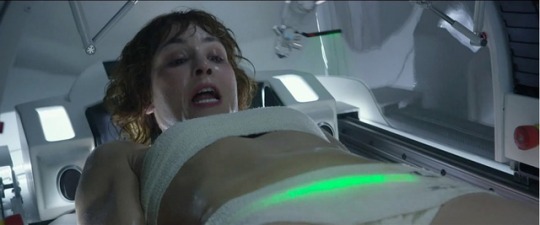
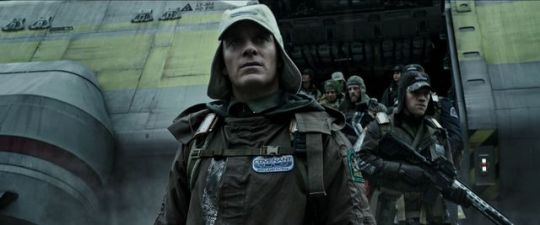
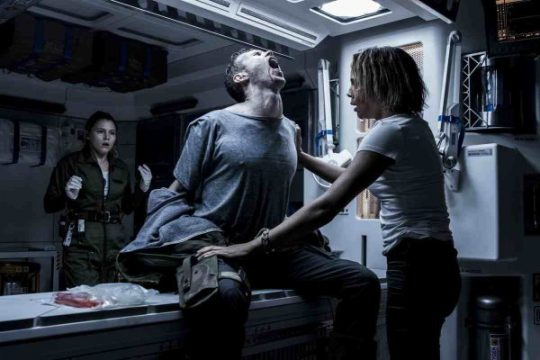
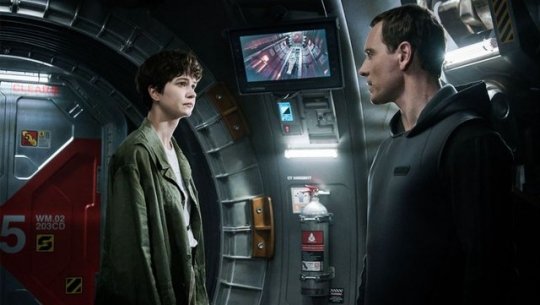


Contains SPOILERS for Alien (1979), Prometheus (2012), and Alien: Covenant (2017).
The problem I have with both Prometheus and Alien: Covenant is that the Alien proto-Xenomorph (Stupid unconvincing and not scary CGI! No suspense or terror with it this time around...) never needed anything resembling an origin story. These aren't questions I had. Nor answers I ever thought of seeking before. Sometimes, the mysterious should stay, well, a mystery. Alien comic by the always fantastic @faitherinhicks.
In Alien, those aboard the Nostromo are woken up and diverted far away from their charted course home to investigate a message of unknown origin. Kane enters a vagina-shaped looking entrance of a found spaceship, becomes a figurative sperm, touches a mystery egg that a Facehugger then emerges from. From that point forward, Kane’s body serves as an incubator for the titular Alien until some early spoken dialogue comes back to violently haunt him (“I feel dead”). The chestburster ripping out of Kane is one of the most iconic scenes in Alien. It is messy, frightening, and bloody. I mean, jeez, Kane was a victim of clear sexual assault and an unwanted pregnancy kills him in the process! Viewers are given glimpses of something grisly occurring (“Bones are bent outwards...Like he exploded from inside”), but the full disturbing magnitude of the parasitic sexual predator is observed here. Prior to, simultaneously, the audience and Nostromo crew learn that the organism has put Kane into a coma, possesses a defense mechanism of molecular acid-like blood, and can survive adverse environmental conditions.
Heck Alien screenwriter Dan O'Bannon said so himself in the Alien Saga documentary released in 2002. "One thing that people are all disturbed about is sex... I said 'That's how I'm going to attack the audience; I'm going to attack them sexually. And I'm not going to go after the women in the audience, I'm going to attack the men. I am going to put in every image I can think of to make the men in the audience cross their legs. Homosexual oral rape, birth. The thing lays its eggs down your throat, the whole number." The more you know right?
See, Alien chiefly works because of its claustrophobic horror atmosphere combined with its characters being in the dark as much as we too stumble about spliced with the subtext I already mentioned earlier. You feel the tension. You fear and totally envision what the “alien” could be capable of. The human mind's perception of a mysterious horror combined with imagination is ridiculous: hence the strength of the withheld image. This is especially heightened throughout the air ducts scenes. Due to this, akin to the malfunctioning mechanical shark named Bruce in Steven Spielberg’s Jaws (1975), the less the Alien’s Xenomorph is visibly seen, the more compelling and terrifying the reveal moment is.
And even when information is gathered about the "alien" the humans are still stuck grasping at straws.
Always one step behind.
Another cadaver.
Eventually, Nostromo’s seven crew members is whittled down to one. Leaving Ellen Ripley, a science-fiction icon, portrayed by Sigourney Weaver, the last one. Where everyone else failed with attempted teamwork, Ripley triumphs alone.
Look, Ripley’s function in Alien is to carry the story forward. That it is her story was and remains a big deal in the big Hollywood picture. Ripley is seen briefly (...Sorry) in her underwear towards the conclusion to signify the “conclusion” of her terrible ordeal (the removal of battle attire, how we change out of work clothing and slip into something more comfortable). I used to have a problem with this, but over the years I saw it more as Ripley foolishly lowering her guard too soon (became too cocky before truly winning) while the exposure of her flesh reflects her vulnerability. Earlier in Alien, the men are seen in their underwear too when they’re awakening. The comatose Kane in his underwear medically make sense I believe, yet could be additionally stating his level of vulnerability at the time. I don’t sleep in solely underwear with a shirt. Nope, I prefer jeans and a shirt, always.
She stealthily and quickly dons astronaut attire, bravely impales the Xenomorph with a harpoon gun shot that sends it into the void of space, and fries it with the engines of the ship burning up the cable to leave it adrift out there. The nightmare is no more. Now mourning, reporting, and sleeping is next. So, through the aforementioned sexual assault subtext, Ripley isn't depicted as powerless or weak in Alien. She courageously kept her composure and survives against the lethal threat that killed the rest of the Nostromo’s crew.
Yeah, the one key aspect that both Prometheus and Alien: Covenant have utterly failed is generating another woman on equal footing with Alien’s Ripley. The freaking focus of the Alien prequels is a male robot designed by a male creator. His creator should’ve of comprehended the deeper implications of David’s piano piece selection of instead of outright criticizing his choice. *Shudders* I don’t study music compositions and I know the meaning behind what David chose, jeez. Should’ve destroyed him immediately. Nope, too dumb to think of that.
We do get female characters and in the kindest way possible that I’m typing they’re essentially awful. Elizabeth Shaw has her uterus cut open (courtesy of David poisoning/killing her boyfriend), repairs him, and is experimented/tortured upon. In comparison, after discovering that Ash isn’t human, Ripley finds out all she can before pulling his plug. Shaw fixed an already proven to be duplicitous android…? What a fool. In Covenant, Daniels “Dany” Branson putting too much trust in Walter backfires when the painfully obvious twist towards the end rears its ugly head. Daniels not verbally battling harder for Christopher Oram to reconsider his position before landing on a trap which also goes against the purpose of the Covenant? The fact that Daniels was allowed to speak a famous Ripley line still baffles and enrages me! You’re not her. Neither is that moron Shaw.
Don’t get me started on Oram following David to a lair of Facehuggers after the android tried to befriend an alien that decapitated Covenant crew member Rosenthal. Or Oram abandoning the mission because they perhaps found another suitable colonization location that isn’t seven years away? His choice kicks off the unspeakable horrors his crew faces against. He jeopardized the lives of his crew and almost 2,000 innocent others inside of the Covenant! Oram, you’re seriously an atrocious captain! Or how about Rosenthal not following orders about staying close by whilst freshening up despite witnessing an alien ripping another crew member’s jaw off with a tail swipe? Or Maggie Faris freaking out at the sight of blood, locking Karine Oram inside with the very deceased transforming Ledward, coming back with a weapon, slipping on blood which makes her miss her target, unable to save the being mauled to death Karine, breaking her ankle when running away then falling down often, missing with every shot except for a bunch of exposed blasting explosives than in turn blow up a ship and herself?! Once again, Ripley follows proper quarantine protocol with her captain Dallas, the infected Kane, and Lambert...Until Ash undermines her and lets them inside the ship. Every crew member lacking a helmet since the air is apparently (that’s not suspicious to anyone? Really?) breathable leads to the demises of Ledward and Hallett plus the freshly born alien killing machines. It was their fault for intentionally touching something or stomping around without a care in the world.
Yes, the sheer idiocy on display in Alien: Covenant is unbearable. Hilarious even. Er, sadly.
The truth is that there’s a barbarous beauty to Alien and with Ridley Scott insisting on prequels to the original classic he's hurting what made Alien so special in the first place.
Look Covenant isn't entirely bad...Just absolutely needless. The ideas within its DNA have considerable merit (same with the previous installment Prometheus) and Scott should of established a new IP instead of piggybacking off of an existing mostly looked upon favorably motion picture brand-name. It is confusing and complex for the sake of it. Covenant notoriously introduces some stuff and then doesn't bother to follow-up on any of them to a degree where it matters in the narrative being told! Such as the theme of love versus duty, to name an example. “Here’s a gay couple! Lope and Hallett! After the fact. Enjoy that cake everyone! Unless you viewed The Last Supper prologue video on Youtube that is.” Um, that is not how you garner praise. Just more deserved derision. Having and reinforcing the script’s couple concept crew might have been interesting. If only Alien: Covenant had bothered to color those finalized paper-thin cut-outs masquerading as genuine individuals and actually followed this angle.
The alien existing as its own damn unmanufactured species in the depths of space apparently isn’t good enough anymore. The “perfect mysterious organism” has been ruined by Covenant: that’s the truth. Dagnabit! No, the world must have at least three prequels to Alien (Scott hinted at six in all). What the French toast?! Basically, the ideas/themes in Prometheus and Alien: Covenant deserve or should've been in a franchise that isn't remotely connected to Alien. We’re eight entries in (counting the AVP movies). EIGHT! With it would seem six more planned to go, oh my goodness. In other words, don’t waste your breath on Prometheus or Alien: Covenant. They offer misplaced themes, awe from certain gorgeous visuals alongside vexation, bafflement, and unintentional hilarity.
#alien 1979#prometheus 2012#alien: covenant 2017#ellen ripley#elizabeth shaw#daniels dany branson#sigourney weaver#noomi rapace#katherine waterson#michael fassbender#android david#android walter#faith erin hicks alien comic#ridley scott#john hurt#android ash#ian holm#christopher oram#billy crudup#lope and hallett were a gay couple#demian bichir#nathaniel dean#xenomorph#chestburster#facehugger#maggie faris#amy seimetz#carmen ejogo#karine oram#trigger warning
1 note
·
View note
Link
Continued from Part 1Chapter 15 starts off with Swerdlow getting a job with a food distributor company run by four brothers, all of whom were assholes with Mob connections. They also had him impersonate of them when talking with vendors or to the school of one of their daughters. Anyway, during this time Swerdlow somehow embezzled three-hundred-thousand dollars without remembering doing so, but the handwriting on the checks used was not actually his. He did, however, open some fake accounts at the bank on behalf of the brothers, during which he met a Russian bank teller who knew about his great-uncle and apparently stalked him for a bit.Also during this time, Swerdlow came into contact with a support group for UFO abductees. He arranged the meetings at his house to his wife’s annoyance, and this went on for a bit until “I realized that the support group was an avenue for borderline lunatics to parade through my house”. Ultimately the group leader ended it with this announcement;“She said ‘It’s all Satan. Satan runs through our minds and tells us false stories. He makes his demons look like aliens in order to fool us. I went to my church, they sat me in a chair, and started to pray. Strange voices came out of me and I spoke in tongues.’”The congregation cleared her after this, so she went home and destroyed all of her UFO crap. According to Swerdlow; “I thought she was nuts, even nuttier than people thought I was”. I don’t really think that’s possible, but okay. Also during this time;“I became obstinate and aggressive, especially toward my family and friends. They have all since remarked that I seemed to simply change overnight into a very evil person. Strict with my children, I yelled and screamed at them constantly. I wanted their toys picked up and put away, even while they still played with them. Of course, I now realize that set the future stage for years of therapy for them. Even my own mother started to call me Hitler. At the time, I kind of liked it.”I think you should be the one undergoing “years of therapy” if you think that your mom calling you Hitler is a good thing, Swerdlow. So during this time, a guy with a French accent claiming that he was from Madagascar called him, but he couldn’t remember the conversation afterwards. A week later, a man from the “Real World One” company approached Swerdlow, convinced our hero to give him several thousand dollars to build affordable housing on Long Island’s east end, and then ran off into the sunset with the money, presumably laughing his ass off.After that, the Madagascar guy then tried to con Swerdlow out of his money, but he got arrested for “trying to buy green cards and then propositioning the female prosecutor.” Meanwhile, helicopters were still buzzing Swerdlow’s house, so he called the FAA to complain, and as a result he was notified that he was under investigation by the Federal Postal inspectors the next day. Around this time, a “friend of a friend” recommended that Swerdlow go to see our dear old friend Preston Nichols. He does so, tells Nichols his story, and Nichols offers to give something he calls the “Wilhelm Reich Procedure”. This unlocks some of Swerdlow’s repressed memories from Montauk. Nichols then invites Al Bielek and Duncan Cameron over, and to his horror, Swerdlow recognizes Cameron as the face he saw in his window as a teenager and from Montauk. He is then possessed by a grey who claimed that because Swerdlow was “one of them”, they could claim his body whenever they wanted to. Nichols responded by saying that Swerdlow “was a human being with a soul from God”. The alien called Preston “Pressed On” and cursed him, saying that Swerdlow was needed to carry out his mission. Then another alien literally yanked the first one out, and moved into Swerdlow’s body. This alien identified itself as a Draconian named “Gengeeko” and told them that an invasion force is currently coming to Earth, and that they would use it as a staging point to access the rest of the galaxy, hence the reason why so many alien races are interested in Earth. The alien then warned Nichols against using his equipment or contacting his Pleiadian friends, and proceeded to attack him. Cameron and Nichols restrained him, and the alien said that humans are weak, and that the Draco Empire would protect them in exchange for raw materials and workers. He also reveals to following;“Our leaders were well aware of the impending invasion, gradually preparing the world population via television shows and movies.”Does this mean Stranger Things is supposed to also be seen as preparation for an alien invasion? Well, better start stockpiling Eggos.“Even rulers in some countries were humans with Draco soul-personalities. The reptilian within my body expanded upon his ideas by saying that the United Nations would be the forum for a central planetary government.”The UN as an effective form of government? Now you’re just being ridiculous, Swerdlow.“United States leaders were in league with Draco allies without realizing it. Some of the leaders of this planet have prepared escape plans to Mars where equipment was already being activated, as well as to other planets and moons in this solar system. Mars has a huge underground facility built by the Sirians over 500,000 years ago.”So our leaders are ditching us, of course. “So long, and thanks for all the votes!”The alien finally said that Swerdlow was once an ambassador to his people, and thus his body could be used before leaving his body, after which we learn that unlike every piece of pop-culture depicting them ever, psychics do not, in fact, get nosebleeds from using their powers. No, they get rectal bleeding(seriously). Moving on.Chapter 16 is just about how when Swerdlow went on a cruise with his wife in the Caribbean, he saw a ghostly white woman floating above the bed, dreamed about shooting down an airliner with his mind, realizing that an airliner did crash at the time that dream happened, was exposed to radiation by a passing UFO and cured of his radiation sickness by some greys on the moon.Chapter 17 describes another time Swerdlow used the WR procedure with Nichols and Cameron. Another Draconian named Tubor possessed him and called humans weak and fragile, and explained that Swerdlow had already agreed to serve as a liaison between them and humans in this way, because he was once the Sirian ambassador to them and negotiated a trade deal. He also reveals that the Draco were hanging around Montauk to observe the mind control experiments, specifically those using sexual methods. Tubor was then kicked out by a Sirian named Mishka, who taught Swerdlow how to protect himself from hostile possession. He also stated that he lived on a space station called the Calumba between Earth and Mars to monitor “interference” in this solar system.Over the next couple of months, Mishka, Mishka’s assistant Marshak, Tubor and Gengeeko all used his body to dispense information.“I was given information that the USSR was in league with the Draco and allowing them to use Soviet bases for advance operations. But the USSR would eventually break up into smaller nations and disrupt the agreement. When this happened, I was told that this was a deception to lull the rest of the world into a false peace. The various Soviet governments were closely aligned with each other. When the opportunity was right, the Soviets would pounce on unsuspecting countries. In this way, the Draco had a powerful ally on Earth to do their dirty work for them.”So this is Putin’s master plan? I don’t really know what he would get out of it, but whatever.One night at 2:00 AM, Swerdlow was summoned to his living room where he met Mishka and another Sirian that had human features. This Sirian held up his hand;“’Hello, Father’ he said. Quite shocked, I asked him what he meant. Giving his named as Elsinob, he told me that his age was the equivalent of 400 Earth years. In the mid-1500’s, he continued my soul-personality was a professor at a university in central Germany. At the time, I was abducted by greys. They took a genetic sample from me and sold my sperm to the Sirians who used it in a hybridization experiment.”So Elsinob reveals that he wanted to meet his biological father and that their minds were linked. He also revealed that Swerdlow’s testicles were implanted with a device that increased his sperm production and made him “extremely fertile, and also that the Jews were created as a joint effort between the Sirians and the Draco, and that the Ohaluan Council gave them the Torah as well as their language of Hebrew. Elsinob then told Swerdlow to return to bed.Chapter 18 starts with Swerdlow meeting a blind New England psychic who helped “deprogram” him. However, she started trying to separate him from Cameron and Nichols, and ended lying to him in order to get money from him. She did, however, reunite him with his “twin flame” Mia, who “became my balance in hyperspace” and boosted his abilities, to the point where he could do “absentee healing”, read minds and call up aliens whenever he felt like it. However as a result of his looming sentencing date for the embezzlement charges, Swerdlow became incredibly depressed and tried to kill himself by driving his jeep into a tree with his eyes closed. However, when he opened them, he found that he was driving slowly on a completely different road. After that he became even more depressed and developed anorexia, and tried to slash his wrists with a pair of scissors until his wife guilted him out of it. Apparently, the prosecutor in the case had threatened to send his wife to prison as an accomplice if he didn’t confess to the embezzlement.“No one wanted to believe what I was saying. After my lawyer read a manuscript that I had written about my life, he told me that I would go to prison forever if I published it. He said that I would be labelled an insane man and put into a federal mental institution. Whenever I went to his office, black helicopters literally hovered outside of his window the entire time I was there.”Seeing no way out, Swerdlow kissed his sons goodnight, left a goodbye message for Cameron on his answering machine, and resolved to kill himself.“I thought about the pain and sorrow my parents and children would feel. I realized that my wife would be relieved that I was gone. I had always been an annoyance to her. Besides, I thought that she was having an affair with her boss.”Well that’s… sad. Anyway Swerdlow took a handful of Prozac pills and a bottle of Russian vodka and was starting to fade away when Cameron, Bielek and Nichols practically kicked his door down to save him. They told him that they cared for him, would be there for him and probably had a The Monster worthy hug-out, just with four middle-aged conspiracy theorists/psychics. Sometime after this, Swerdlow underwent another WR procedure and found himself being transported from Montauk to the Middle East right in front of Jesus Himself. A voice in his head ordered him to shoot Jesus, but it turns out that he didn’t shoot Jesus after all! Instead he dropped the gun and ran away, but he knew that Jesus forgave him. Next he appeared at the foot of the cross, and extracted some blood from Jesus’s big toe. When he looked up, Jesus was smiling at him. He then appeared on Mars were he handed the vial of blood over to Cameron, before abruptly coming out of the trance.“I remembered that the blood of Christ was to be used to clone a body with an android brain. A duplicate of Jesus, it would have a government mind! The second coming would be staged!”…………………………………………………Yeah, so how many chapters are left in this? Eight? Fuck.So after this project was completed in the underground Mars base (accessed by a captured UFO in Area 51) the government would use the android-Jesus-clone (did I really just type that?) to control the masses.“The government also hoped to activate the defense systems on Mars and the Moon before the Draco invasion force arrived. This was a race against time. The government needed to have the people of Earth trust them and believe everything they were told. Who more would they trust than Jesus Christ Himself?!”I don’t even……Let’s just move on. So after “the Jesus episode” (as Swerdlow calls it), in Chapter 19 our hero reveals that the survivors of the Montauk Project are acting as sleeper agents, ready to activate at a moment’s notice, whether to form vigilante groups to act against government enemies, establish satanic cults to capture more people for experiments or to prepare for the alien invasion. They were also tested with the Oklahoma City bombing, and the 1996 Atlanta Olympics bombing. He then goes on a tangent about how China is filled with millions of Jewish descendants of refugees from the Roman conquests and that they will eventually join with Israel annihilate “the Moslem fundamentalist countries”, possibly using Sirian laser and sonic weapons.“The Moslem fundamentalists are the only resistance force that would be detrimental to the Draco invaders upon their arrival. Accordingly, the Draco want them eliminated to ensure a smoother transition of power.”Because I guess even space-faring alien races can’t take over the Graveyard of Empires. He also learned that twelve alien races created life on Earth, and that they’re still sticking around the solar system, shooting down any human probes that get too close.Chapter 20 describes how Swerdlow always had the ability to read minds since he was a child, but he suppressed it because no one believed him. Here he explains that psychic powers are not the result of LSD use during pregnancy, metal rods jammed in fetus skulls, sex magick or whatever other stupid crap these books came up with, but instead its all based on your DNA, just like everything else, which could occasionally be opened up in a “Kundalini activation”. In order to fill more pages I guess, Swerdlow repeats his story of how he was abducted and trained by both the aliens and Montauk crew. He also said that the Montauk Boys’ body cells were used to store information (somehow) and transferred his energy to boost a psychic in the chair through the use of a computer. Eventually, he didn’t need the computer anymore and could do it at will, which he used to “ruin the experiments through mental interference”. To change his focus, he was assigned to preparing the other kids ranging in age from four to twenty-five (anyone older was sent to be slaves for the greys because by that point their “mind-patterns” couldn’t be altered). He apparently enjoyed this due to the influence of his former life as a Nazi. However all of this experimentation damaged his digestive and nervous systems and he’s nearly blind and deaf, instead having to rely on perceiving their “energy fields”, auras and mind-patterns. These powers could be amplified by electromagnetic energy from computers, phones and televisions. However, despite these drawbacks, he is incredibly powerful.Chapter 21 is about his sentencing, which was set for February 27, 1992. In exchange for a confession, he was a promised a four month sentence in a “country club prison camp”. However, he was somehow informed that a “major power” was sending a nuclear missile into a “small Middle Eastern country”, and Swerdlow was somehow able to tell the government about the attack. Because of that, his lawyer informed him that his sentencing had been moved up.“Even though I had given him my last dime, this lawyer constantly hounded me for money. Repeatedly, he told me that he would continue to represent me even if I admitted to committing the most heinous of crimes. I just could not understand him. It seemed that the prosecutor, who was his friend, and the government had all teamed up with my wife to drain every last asset from me for as long as possible; then discard me when there was nothing left. I suppose that this is typical of the legal profession.”Welcome to the American legal system, Stewart. So anyway, on the day of his sentencing, Nichols, Cameron, his parents, sister and wife all showed up, and he was sentenced to thirty-three months in a federal prison camp. It turns out that his lawyer lied to him. Swerdlow became depressed again because of this, and his blind deprogrammer was telling him that going to prison was part of her alien friends’ plans. He boarded a plane to Kentucky after his wife yelled at him when he was hugging his kids, and considered jumping on another plane to flee the country when he saw some alien skywriting that convinced him to stay.Chapter 22 is about his experience in prison. So his belongings were confiscated, and he immediately thinks about Holocaust victims losing all of their things in a melodramatic way. He then proceeded to start sobbing extensively. He eventually met the other inmates who immediately assumed that he was part of the Mafia because he was from New York. Most of them were just drug dealers, pot growers or tax evaders and were all very kind. The prison itself was a nightmare rife with corruption and abuse, but Swerdlow became a teacher in a GED program, and ended up teaching the inmates all about auras and mind-patterns. He used his abilities to cure some aliments and do dream analysis. He was constantly on the phone with his deprogrammer, the aliens were sending him telepathic messages and cloud messages (which he was able to erase), and Nichols mailed him. However, the government blocked all the letters, so Swerdlow threatened them over the phone and “caused a small earthquake in Kentucky because I could not contain my anger”. Also, his wife was cheating on him the entire time he was in there with his boss and in fact worked with the prosecutor to imprison him. However, while in the camp, he did learn that the prisons are just models for the New World Order envisioned the future would be like, Japanese banks are a front for US and German money, the US Postal Service is a front for a British bank, foreign troops are trained in the US, and that the AIDS virus was created in an American lab and released in St. Louis, Missouri in 1967. Finally, his fellow inmates informed him that there are indeed groups of organized rebels hiding in the mountains with massive arsenals ready to revolt and conquer bird sanctuaries across the nation!In Chapter 23, Swerdlow is transferred to a prison camp in Pennsylvania. The inmates here are much different.“These prisoners, mostly from the northeast, were unfriendly, arrogant and wealthy. Many were lawyers and this actually pleased me. I felt that they were finally where they all belonged except they were breathing!”That’s…. harsh. Anyway, once again, Swerdlow became a teacher, both for GED and English Second Language for a large amount of illegal aliens from Latin America as well as some Middle Eastern former terrorists. He also taught them about “the truth behind the American government”, which delighted the terrorists. He also wrote a book on teaching GED and ESL, which was quickly taken by the government with his name struck from it. He also met a guy named Peter Filatov here, and you can tell that this was written in the 90’s because they had good first impressions due to Filatov being Ukrainian and Swerdlow being Russian. Swerdlow told everything already mentioned in this book, and they both wrote a book together.It was at this point that Peter Moon sent Swerdlow a letter asking permission to tell his story in the Montauk books. His deprogrammer told him to refuse, but Moon put his name in the acknowledgements of Experiments in Time, which one of the prisoners was reading. Because of this, Swerdlow became a celebrity. Oh, and Swerdlow also managed to charm the “beautiful” female guard who processed the mail into smuggling contraband in for him. He also claimed that he tried to heal actor Dack Rambo of AIDS, but failed because his chemotherapy treatments weakened his heart too much. Swerdlow still talks with him in hyperspace, though.After a letter to a congressman, Swerdlow was transferred to a Philadelphia military base, right next to where the Eldridge was docked. During this time he learned that there are government emergency stockpiles all over the country, and that there was a hyperspace transit system grid across the nation. He also corresponded with NASA to interpret an image beamed from a comet near Jupiter that said the comet would turn Jupiter into a sun, which would melt the frozen moons of Jupiter and Saturn, thus creating more Earth-like planets. In the last six months of his sentence, he was transferred to a halfway house in Brooklyn, which was in the middle of constant gang wars. There, a security guard pressed him for information about UFOs. Swerdlow also stopped talking with his deprogrammer after she started taking credit for his information and talked smack about Nichols and Cameron.Swerdlow gets out of prison in Chapter 24 and gets a job helping mentally-handicapped adults. Apparently this was even worse than prison because he wasn’t allowed to actually treat the patients and the supervisors tattled on everything. He tried to help the patients, but while doing that his wife forced him into the garage while she continued to cozy up with her boss. Here, he became a radionics teacher to heal mind-patterns and used his radionics machines to keep his place of employment calm and healed epileptics. He was advised by a friend to contact a woman in Oregon named Janet Dian, because they had a lot in common.Chapter 25 describes Dian. Swerdlow describes her as looking like a model, having a gentle, angelic voice, and was already married. He was telling her about the Montauk Project when he suddenly had the urge to blurt out that he saw her leaving her husband, moving to New York, marrying Swerdlow and having a child with him. Amazingly, after only one phone call, she was receptive to this plan (really makes you wonder what her husband was like). They apparently lived a past life together and were remembering each other, in which they were both aliens and Swerdlow was a diplomat who was shot down in a fiery explosion a millennia ago. Swerdlow also used his incredible powers to travel through hyperspace in order to bang her literally every night.However, Swerdlow got into a fight with his wife, and she ended up hospitalizing him, which finally convinced him to get a divorce and move back in with his parents. At the same time, Dian was trying to flee from her abusive husband with the help of her mother. They met in New York City and immediately hit if off in a hotel room. Dian used her abilities “to remove an etheric object from my solar plexus”, which was planted there by Swerdlow’s deprogrammer as a means of influencing him. Since then, the deprogrammer has begun a negative attack campaign trashing him. Dian went to her mother’s house in Missouri and informed Swerdlow that she was pregnant two weeks later. Because of this, her mother was kicking her out, so she had to move in with Swerdlow. So our hero gathered his family together to explain the circumstances, and was about to drop the news of her pregnancy when his sister announced it. She found out a week before from telepathic messages received from her dead relatives via Ouija board. She never just never mentioned it until then because… I have no idea.So anyway, the parents are fine with Dian moving in, and Swerdlow discovers that they’re perfect for each other. Finally, we move into Chapter 26, in which Dian finally divorces her dickwad/Lonnie of a husband, and gives birth to boy named Zachary via Caesarean, however much like Swerdlow was as a kid, Zachary is described as “an old soul” that is already incredibly adult. Anyway, Dian and Swerdlow are happy with each other due to being “other-halves” which is different from twin flames because they’re split from the same “Oversoul”. Anyway, the Swerdlow family is living wonderfully now (as of 1998) and Stewart has devoted his time to using his powers for helping others. He invites us to “join me in an effort to save our planet and mankind from destruction.”Finally, we have an Afterward by Moon.“We can be grateful that our current times and moral climate do necessitate labeling of these experiences of an insane individual.”Oh, really?So basically Moon says that love is indeed the key to our salvation, and puts in an ad to hire Swerdlow for a lecture or to practice all of the crazy shit he talked about in this book. Moon also states that Swerdlow is coming out with a new book; The Healer’s Handbook: A Journey into Hyperspace that will cause its readers to “be moved beyond your current horizons and propelled to new vistas of consciousness”, whatever that means. However, looking at that book reveals it be short and more of a guide book about hyperspace and having little to nothing to do with Montauk, so I’m going to skip over it for the next entry in the series, The Music of Time. In the meantime, I’ll leave you with Moon’s words of wisdom;“Whether you are bored, abducted or being strangled by a member of your domestic environment, there is a new reality which awaits you.”Thanks for reading, and Stay Strange.The Montauk Project: Experiments in Time OverviewMontauk Revisited: Adventures in Synchronicity OverviewPyramids of Montauk: Explorations in Consciousness OverviewEncounter in the Pleiades: An Inside Look at UFOs OverviewThe Black Sun: Montauk’s Tibetan-Nazi Connection Overview via /r/StrangerThings
1 note
·
View note